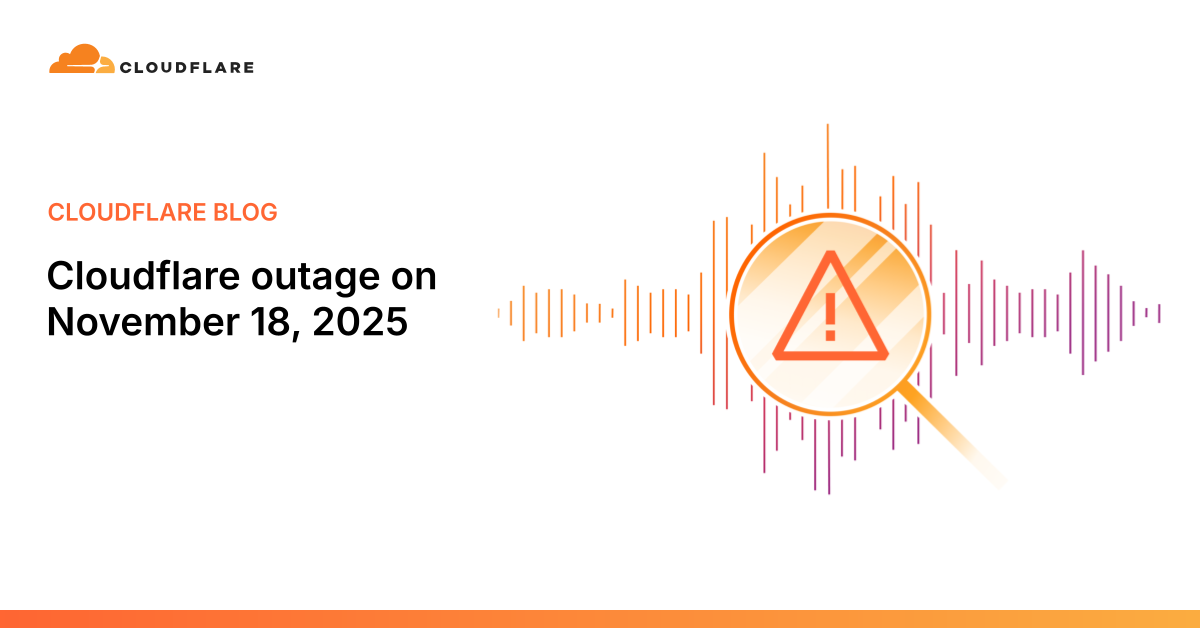The issue was not caused, directly or indirectly, by a cyber attack or malicious activity of any kind. Instead, it was triggered by a change to one of our database systems’ permissions which caused the database to output multiple entries into a “feature file” used by our Bot Management system. That feature file, in turn, doubled in size. The larger-than-expected feature file was then propagated to all the machines that make up our network.
The software running on these machines to route traffic across our network reads this feature file to keep our Bot Management system up to date with ever changing threats. The software had a limit on the size of the feature file that was below its doubled size. That caused the software to fail.



When are people going to realise that routing a huge chunk of the internet through one private company is a bad idea? The entire point of the internet is that it’s a decentralized network of networks.
Someone always chimes into these discussions with the experience of being DDOSed and Cloudflare being the only option to prevent it.
Sounds a lot like a protection racket to me.
Companies like OVH have good DDoS protection too.
I hate it but there really isn’t much in the way of an alternative. Which is why they’re dominant, they’re the only game in town
How come?
You can route traffic without Cloudflare.
You can use CDNs other than Cloudflare’s.
You can use tunneling from other providers.
There are providers of DDOS protection and CAPTCHA other than Cloudflare.
Sure, Cloudflare is probably closest to asingle, integrated solution for the full web delivery stack. It’s also not prohibitively expensive, depending on who needs what.
So the true explanation, as always, is lazyness.
I’m lazy and use cloudflare, so that checks out. Due to recent events I’ll switch to another CDN, the centralization of the internet is very concerning.
I’m a fan of BunnyCDN - somehow they’re one of the fastest while also being one of the cheapest, and they’re based in Europe (Slovenia).
KeyCDN is good too, and they’re also Europe-based (Switzerland), but they have a higher minimum monthly spend of $4 instead of $1 at Bunny.
Fastly have a free tier with 100GB per month, but bandwidth pricing is noticeably higher than Bunny and KeyCDN once you exceed that.
https://www.cdnperf.com/ is useful for comparing performance. They don’t list every CDN though.
Some CDN providers are focused only on large enterprise customers, and it shows in their pricing.
Wow, bunny is second in query speed, just below cloudflare. Impressive!
Bunny.net covers some of the use cases, like DNS and CDN. I think they just rolled out a WAF too.
There’s also the “traditional” providers like AWS, Akamai, etc. and CDN providers like KeyCDN and CDN77.
I guess one of the appeals of Cloudflare is that it’s one provider for everything, rather than having to use a few different providers?